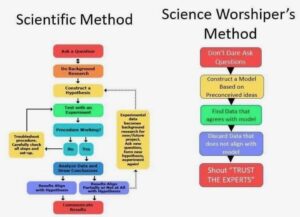
India’s Health Ambassador & Tamil Actor Vivek Dies One Day After Taking COVID Vaccine

Well THAT’s embarrassing isn’t it?
India’s Health Ambassador & Tamil Actor Vivek Dies One Day After Taking COVID Vaccine
COVID Vaccine Car Metaphor

COVID Vaccine Is A Depopulation Tool

This dramatic bald statement or claim is apparently backed up by the scientific analysis of the data as per this interview: http://www.tomgrimshaw.com/tomsblog/?p=32377
New South Wales woman, 48, dies only days after receiving coronavirus vaccine

A woman in her 40s has died after receiving the coronavirus vaccine.
The 48-year-old from the New South Wales Central Coast was hospitalised and died on Wednesday after being given the vaccine last Friday.
Watch the video above for further details on the incident
There were unconfirmed reports she suffered from blood clots after receiving the jab.
She is also believed to have been diabetic.
COVID Shot Causes Problems

The Top 10 Ways The COVID Shot Will Affect You
This is a vital watch! Sherri calls it a very well designed killing machine. At the time this was posted Sheri had identified 10 mechanisms by which it harms the body. She has later identified 40 different human systems which it harms.
The Evolution of Bill Gates

How Food Grade Diatomaceous Earth (DE) Works…
(Tom: I would have liked to see some references quoted for the claims made in this article I am sharing but if you are interested you can always do your own homework.)
When Diatomaceous Earth is taken into the body it starts working in 3 different ways:
1st:
As it moves through the stomach and digestive tract, it attracts and absorbs bacteria, fungi, protozoa, viruses, endotoxins, pesticide and drug residues, E-Coli, and heavy metals. These toxins are trapped and passed out of the body. In addition, any parasites that happen to be in the stomach or digestive tract as well as the rest of the body are killed by the D.E.
All of these activities result in a much healthier body with less sickness. We often hear the phrase “I just feel better” with our DE users. This better feeling comes from all the “junk” being removed from the body and by giving our immune system the “jump start” it needs.
2nd:
After only a few months of taking DE, the intestine wall is no longer coated with mucus and molds but CLEAN!! The advantages of this are:
1. Regular bowel movements (This is the #1 comment everyone makes about DE)
2. Healthier Colon. This is especially important as we get older. A clean healthy colon keeps away polyps, cancers, and ulcers. Today, many are spending thousands of dollars to get colonics to do the same thing as DE does.
Many users report increased energy and needing less sleep. This is a result of all the food and nutrients that are taken in being better absorbed into the blood stream. With a coated colon–many nutrients never get absorbed.
3rd:
A small amount of Diatomaceous Earth gets absorbed into the blood stream approximately 2% as silica. One of the benefits of Silica is that it helps to destroy bad fats. Everyone that we know that is taking DE has lowered their cholesterol by 40-50 points. Everyone is also amazed at how their high blood pressure goes down.
The benefits of silica are many. In today’s grains, there is actually a shortage of silica. Years ago, the silica found in our foodstuffs was adequate, but the silica was in the husk and they have been removed from the grains and with today’s hybrids and depleted soils, only about 1/3 of the silica needed is supplied in our food. DE is a simple and inexpensive way to get the silica your body needs.
The intake of silica through DE can help you in many ways:
1. Lower High Blood Pressure!
2. Lower High Cholesterol! –
Most are reporting 40-60 points lower after only 2 weeks on DE.
3. Sore joints feeling better –
Osteoporosis is a symptom of the aging process. As calcium in our body system depletes, our bones become brittle and weak. Taking only a calcium supplement can not correct or stop this threatening and crippling disease because the body cannot assimilate and make use of the calcium without the presence of silica.
Evidence suggests that, instead of affecting healing, supplemental mineral calcium, on the contrary, accelerates the leaching away of bone calcium and thus hastens the degenerative process of osteoporosis and similar diseases that affect the supportive and connective tissues in the human body.
For osteoporosis, silica can stop the pain and even restore the bodies’ self repair process. Silica is responsible for the depositing of minerals into the bones, especially calcium. It speeds up the healing of fractures and also reduces scarring at the site of a fracture. Even when calcium is insufficient, the body can turn silica into calcium that the bones need.
4. Healthier skin –
Overseas, DE is used extensively as a health and beauty product for hair, skin, nails, bones, and joints. Tissue degeneration accelerates due to aging when connective tissue develops an increasing inability to retain moisture when left unassisted.
Silica can help slow the degenerative process of connective tissue. With silica, vitality and life, which are often lost as the years accumulate, can be naturally maintained or even restored to your skin.
Collagen, largely made up of silica, is the glue that holds us together. If our body has enough silica, the collagen will make us look younger. Silica helps with skin problems and injuries including itching, rashes, abscesses, boils, acne, calluses, warts, eczemas, burns, frostbite, benign skin sores, insect bites and bed sores. If you regularly follow a silica regimen, your skin will keep its young look.
5. Hair That Grows Back–
Hair at 90 micrograms per gram is almost as rich in silica as are healthy bones, which contain 100 micrograms per gram. Silica is a major component of hair. Using a good silica supplement (such as DE) should be part of your ongoing hair care program for revitalizing hair. Silica helps to reverse ?? baldness, stimulates healthier hair growth and assures beautiful shine, luster and strength.
6. Teeth and Gums!
– Hardening the enamel, silica prevents cavities and preserves teeth. Silica also prevents bleeding gums, gum atrophy, and recession that causes the loosening of teeth, which could ultimately lead to tooth loss. Silica effectively fights ulceration and the decay of bones and teeth and also lessens inflammation.
7. Toughens nails –
Your nail plates are complex protein structures that grow four to five millimeters per month on average. With silica supplementation, fragile nails become normal within a short period of time. Silica will beautify the appearance of your nails and improve their hardness, making them shinier and less prone to breaking.
More Benefits!
Silica lowers bad cholesterol and raises good. Silica fades age spots. Silica stimulates metabolism for higher energy levels. DE has a negative charge and bacteria have a positive charge. It is believed that it sweeps bacteria out of the body by trapping it in its honeycomb shaped skeletal form.
Silica supplementation helps repair and maintain vital lung tissues and protects them from pollution. By maintaining or restoring the elasticity of lung tissues, silica reduces inflammation in bronchitis. It acts as a cough decreasing agent.
Silica tones the upper respiratory tract (nose, pharynx, larynx) and reduces swelling because of its positive action on the lymphatic system.
Silica supplementation keeps menopause free of stress and helps to prevent many unwanted side-effects.
Cancer can not survive in cells that have the correct levels of Silica.
Silica works with other antioxidants to prevent premature aging and to preserve youthfulness.
Silica can help prevent kidney stones and heal infections of the urinary tract. It is a natural diuretic which can increase excretion of urine by 30 percent, thus flushing the water-excreting system and restoring normal function to these vital organs.
The presence of sufficient silica in the intestines will reduce inflammation of the intestinal tract. It can cause disinfection in the case of stomach and intestinal mucus and ulcers. Silica can prevent or clear up diarrhea and its opposite, constipation.
Silica will help normalize hemorrhoidal tissues. In regulating and normalizing the bowels, silica has a pleasant side effect; it can alleviate lower back pain, which often troubles the elderly.
Silica proves effective with female discharge, abscesses and ulcers in the genital area and cervix, as well as mastitis (especially for breast feeding mothers).
The intake of silica acts as a supportive treatment for inflammation of the middle ear. Because of the beneficial effectiveness on the lymphatic system, silica can be used for swelling of the lymph nodes in the throat.
Has anti-inflammatory disinfecting, absorbing and odor binding effects.
Silica can normalize circulation and regulate high blood pressure (hypertension).
Silica can decrease vertigo, headache, tinnitus (buzzing of the ears) and insomnia.
Silica can help diabetes by promoting synthesis of elastase inhibitor by the pancreas.
Silica can help arterial disease by strengthening the blood vessels. Studies confirm that with age, silica disappears from the aorta, the heart’s key blood vessel thus weakening its critical connective tissue and resulting in a greater cardiac risk.
Silica can help prevent Tuberculosis.
By improving the elasticity of the joints, silica helps rheumatism.
Silica has inhibitory effects on coronary diseases.
Silica can help avoiding or alleviating Alzheimers disease by preventing the body from absorbing aluminum and may flush out aluminum from the tissues.
Silica can stimulate the immune system.
Some have experienced higher energy levels, so it is probably better not to take it right before sleeping. No worry about getting too much–any excess silica not needed by the body is automatically eliminated through the blood stream, kidneys and intestines.
Ok, one more thing about DE and absorbants like “activated charcoal”. When a person overdoses, the hospital puts this in their stomach to absorb the toxics/posions they ingested.
Scientific vs Science Worshipper

